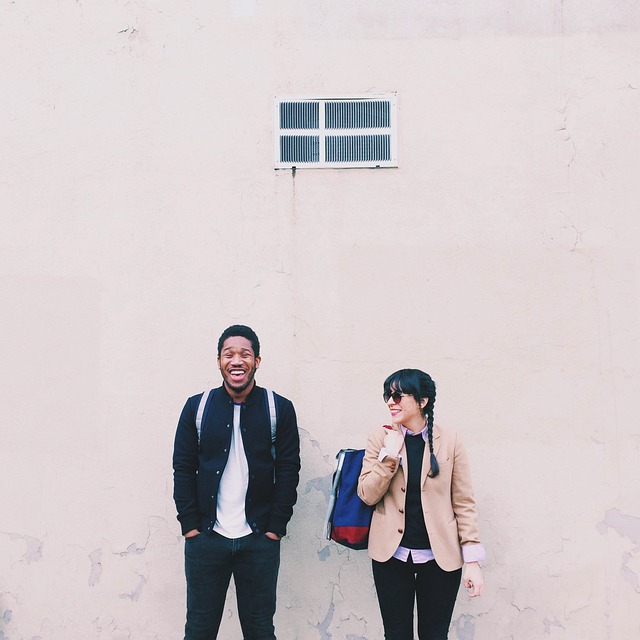Offline Safety Measures
In this article, “Offline Safety Measures,” we will explore various strategies and precautions that individuals of all ages, particularly those interested in dating, can take to ensure their safety when interacting offline. Addressing the concerns and risks associated with meeting people in person, this comprehensive and informative long-form article aims to educate readers on the importance of offline safety measures. From tips on setting up initial meetings to creating a safety plan, we strive to provide accessible information that can be understood by a wide range of readers, including 9th graders. By delving into this topic, readers will gain valuable insights into safeguarding personal well-being while engaging in real-life encounters.
Safety Measures for Personal Information
In today’s digital world, it is crucial to protect your personal information from falling into the wrong hands.

Be cautious with sharing personal information
One of the most important safety measures for protecting your personal information is to be cautious about whom you share it with. Do not disclose sensitive information such as your home address, social security number, or financial details to anyone unless you trust them and know the purpose behind the request. Be particularly wary of sharing personal information over the phone or through unsolicited emails.
Avoid sharing personal details on public platforms
The advent of social media has made it easier than ever to connect with friends and share updates about your life. However, it is important to be mindful of what you share on these platforms. Avoid posting personal details such as your full name, address, phone number, or birthdate, as this information can be used by identity thieves. Also, consider adjusting your privacy settings on social media to limit the visibility of your personal information to only trusted friends and family.
Use strong passwords and change them regularly
Creating strong, unique passwords is essential for protecting your personal information online. Avoid using easily guessable passwords such as your birthdate or “123456.” Instead, opt for a combination of upper and lowercase letters, numbers, and special characters. Additionally, consider using a password manager to securely store and generate passwords for your various accounts. It is also important to change your passwords regularly to minimize the risk of unauthorized access.
Protecting Physical Safety
While it is important to safeguard your personal information online, it is equally important to prioritize your physical safety in various situations. By following a few safety precautions and being aware of your surroundings, you can minimize potential risks. Here are some measures to keep in mind:
Be aware of your surroundings
Whether you are walking down the street, in a crowded area, or even at home, it is crucial to be aware of your surroundings. Pay attention to the people around you, any suspicious activities, or anything that seems out of the ordinary. By staying vigilant, you can respond appropriately to potential threats or dangers.
Avoid traveling alone at night
When possible, it is best to avoid traveling alone at night, especially in unfamiliar or high-crime areas. If you do need to be out after dark, try to arrange for a trusted friend or family member to accompany you. Additionally, consider using well-lit and busy routes and be mindful of any potential risks or dangers.
Trust your instincts when it comes to people and places
Your instincts are a powerful tool for keeping yourself safe. If a person or a place feels uncomfortable or unsafe, trust your gut feelings and remove yourself from the situation. It is always better to err on the side of caution and prioritize your safety.
Secure Social Media Usage
Social media has become an integral part of our daily lives, allowing us to connect with others and share our experiences. However, it is important to ensure that we use social media platforms securely and responsibly. Here are some safety precautions to follow:
Review and adjust privacy settings
Take the time to review and adjust the privacy settings on your social media accounts. By doing so, you can control who can see your posts, photos, and personal information. Consider limiting the visibility of your profile to trusted friends and family members, rather than making it completely public. Regularly review and update these settings as needed.
Be mindful of the content you share online
Think twice before sharing any personal information or intimate details on social media platforms. Remember that once something is shared online, it can be difficult to completely remove or control its circulation. Avoid posting photos or content that may compromise your safety or privacy, such as images of your home, children, or personal identification documents.
Avoid accepting friend requests from strangers
Be cautious about accepting friend requests or connections from people you do not know personally. While social media can be a great way to connect with new people, it is important to exercise caution and only accept requests from individuals you trust. Additionally, be wary of sharing personal information with online acquaintances, as they may not always have your best interests in mind.
Safety Precautions for Online Shopping
With the convenience and popularity of online shopping, it is important to take certain safety precautions to protect your financial information and personal details. By following these tips, you can minimize the risks associated with online shopping:
Shop from secure websites only
When making online purchases, ensure that you are only shopping from secure websites. Look for the “https” in the website’s URL, indicating that it is using a secure connection. Avoid entering your personal or financial information on websites that do not have the appropriate security measures in place.
Keep track of your online transactions
Stay organized and keep track of your online shopping transactions. Save confirmation emails, receipts, and any other relevant information related to your purchases. Regularly review your bank and credit card statements to ensure that there are no unauthorized charges. If you notice any suspicious activity, report it to your financial institution immediately.
Beware of phishing emails and scams
Be cautious of phishing emails and scams that attempt to trick you into revealing your personal information or financial details. Avoid clicking on suspicious links or downloading attachments from unknown sources. If you receive an email or message that appears to be from a reputable company but asks for sensitive information, verify its authenticity before providing any personal data.
Preventing Identity Theft
Identity theft can have devastating consequences, compromising your financial well-being and personal security. Taking preventive measures is crucial in protecting yourself against this type of fraud. Here are some safety measures to consider:
Shred important documents containing personal information
To prevent your personal information from falling into the wrong hands, it is essential to properly dispose of documents that contain sensitive information. Invest in a good-quality cross-cut shredder and use it to shred documents such as bank statements, credit card offers, receipts, and any other paperwork that contains personal details before discarding them.
Regularly check your credit reports
Monitoring your credit reports is an effective way to detect any unauthorized activity or signs of identity theft.

Be cautious with online financial transactions
When engaging in online financial transactions, such as banking or shopping, ensure that you are using secure and trusted websites. Look for the padlock symbol in the browser’s address bar, indicating a secure connection. Avoid entering personal or financial information on public computers or unsecured Wi-Fi networks, as these can be vulnerable to hacking attempts.
Safety Measures While Traveling
Whether you are traveling locally or abroad, it is important to prioritize your safety and take necessary precautions. By being prepared and aware of potential risks, you can enjoy a safe and memorable trip. Here are some safety measures to consider:
Research and plan your trip in advance
Before embarking on your journey, take the time to research and plan your trip in detail. Familiarize yourself with the local customs, laws, and potential safety concerns of your destination. Make a list of emergency contacts and important numbers, such as the local authorities and your embassy or consulate, and keep them easily accessible.
Keep copies of important documents
Prior to traveling, make copies of your passport, identification cards, travel itineraries, and any other important documents. Keep one set of copies with you and store them separately from the originals. In the event of theft or loss, having these copies can expedite the process of obtaining replacements.
Notify trusted individuals about your travel plans
Before leaving for your trip, make sure to inform trusted friends or family members about your travel plans.

Protecting Children Offline
As parents or guardians, it is our responsibility to ensure the safety of our children both online and offline. By teaching them about personal safety and implementing certain precautions, we can help protect them from potential risks. Here are some measures to consider:
Teach children about personal safety
Educate your children about personal safety from an early age. Teach them to not share personal information with strangers, both online and offline. Encourage open communication and let them know that they can always come to you if they feel uncomfortable or threatened.
Monitor their online activities and friends
Regularly monitor your children’s online activities and the people they interact with. Establish clear rules and guidelines for internet and social media usage. Encourage them to only accept friend requests or follow individuals they know in real life. Additionally, consider using parental controls or monitoring software to help protect them from inappropriate content and potential online dangers.
Make sure they have emergency contact information
Ensure that your children have access to emergency contact information, including your phone number, their full name, and address. Teach them how to reach out for help in case of an emergency and make sure they are familiar with important contact numbers, such as those for the police and emergency services.
Safety Tips for Dating
When it comes to dating, it is important to prioritize your safety and well-being. Whether meeting someone for the first time or going on subsequent dates, taking certain precautions can help ensure a positive and secure experience. Here are some safety tips to keep in mind:
Meet in public places for initial dates
When meeting someone for a date, especially for the first time, it is best to choose a public location. Opt for crowded venues such as coffee shops, restaurants, or parks where there will be other people around. Avoid secluded or private locations until you feel comfortable and have built trust with the other person.
Inform a friend or family member about your plans
Before going on a date, inform a friend or family member about your plans. Share the details regarding where and when you will be meeting, as well as the name and contact information of the person you will be going out with. This way, someone trustworthy is aware of your whereabouts and can check in with you if needed.
Trust your instincts
Your instincts are a crucial tool when it comes to personal safety. If something feels off or uncomfortable during a date, trust your gut feelings and take appropriate action. It is better to end a date prematurely or remove yourself from a potentially unsafe situation than to put yourself at risk.
Maintaining Safe Relationships
Maintaining safe and healthy relationships is vital for your overall well-being. By setting boundaries, recognizing signs of abuse, and seeking help when needed, you can promote a safe and respectful environment. Here are some measures to consider:
Set boundaries and communicate openly
Communication is key to maintaining a safe and healthy relationship. Clearly establish your boundaries and make sure your partner respects them. Encourage open and honest dialogue, where both parties feel comfortable expressing their needs and concerns.
Recognize signs of emotional or physical abuse
It is important to be aware of the signs of emotional or physical abuse in a relationship. These can include, but are not limited to, constant criticism, controlling behaviors, physical aggression, isolation from friends and family, and threats of harm. If you suspect or experience any of these signs, it is essential to seek help and remove yourself from the situation.
Seek help if needed
If you find yourself in an unsafe or abusive relationship, do not hesitate to seek help. Reach out to trusted friends, family members, or professionals who can provide support and guidance. There are many resources available, such as helplines and shelters, that can assist you in leaving an abusive relationship and rebuilding your life.
Safety Measures for Home and Property
Protecting your home and property is essential for your personal safety and peace of mind. By implementing certain security measures and being mindful of your actions, you can reduce the risk of theft or burglary. Here are some safety tips to consider:
Install security systems and locks
Investing in a reliable security system, such as an alarm system or surveillance cameras, can greatly enhance the safety of your home. Install sturdy locks on all doors and windows, and make sure to use them consistently. Additionally, consider installing motion sensor lights around the exterior of your property to deter potential intruders.
Keep your home well-lit and secure
A well-lit home is less likely to be targeted by criminals. Ensure that the exterior of your home is well-lit, especially around entry points. Use timers or smart lighting solutions to simulate occupancy when you are away. Also, remember to close and lock all doors and windows when you leave the house, even if only for a short period of time.
Avoid advertising expensive purchases
When it comes to expensive purchases, exercise caution in how you handle the related packaging and advertising. Dispose of packaging discreetly so as not to advertise valuable items inside your home. Additionally, avoid posting about expensive purchases on social media, as this can attract the attention of potential thieves.
In conclusion, prioritizing safety measures in various aspects of your life is essential for maintaining personal security and well-being. By being cautious with personal information, protecting physical safety, using social media securely, taking precautions during online shopping, preventing identity theft, traveling safely, safeguarding children, following safety tips for dating and relationships, as well as implementing home security measures, you can greatly reduce potential risks and promote a safe environment for yourself and others. Remember, safety starts with you, and it is never too late to prioritize your well-being.






